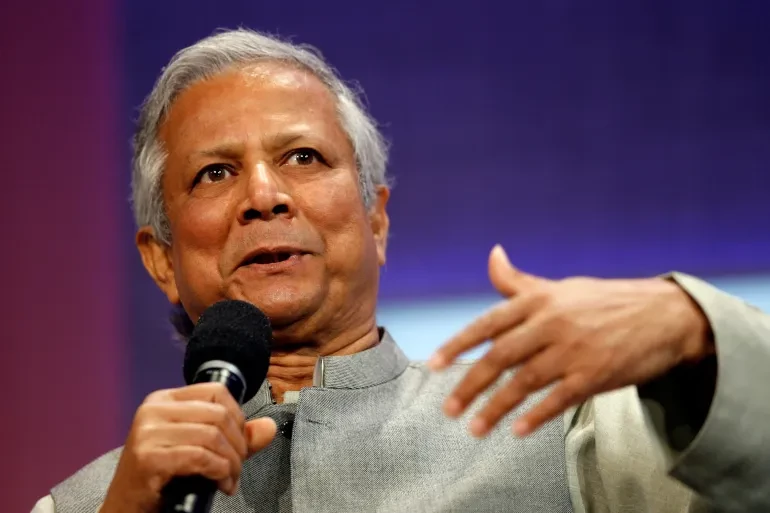More than 160 global figures, including Barack Obama and Ban Ki-moon, published a joint letter Monday warning of "threats to democracy and human rights" in Bangladesh ahead of upcoming elections.
The letter decried the "continuous judicial harassment" of Nobel laureate and micro-credit pioneer Muhammad Yunus and said it feared for "his safety and freedom".
Yunus, 83, is credited with lifting millions out of poverty but he has fallen out with Prime Minister Sheikh Hasina, who has said he is "sucking blood" from the poor.
He was awarded the 2006 Nobel Peace Prize for his work promoting economic development.
National elections are due in Bangladesh by the end of January, but rights groups and foreign governments have long raised concerns over efforts by Hasina's government to silence criticism and stamp out political dissent.
"We are deeply concerned by the threats to democracy and human rights that we have observed," the letter added. It follows an earlier appeal by 40 leaders in March.
"We believe that it is of the utmost importance that the upcoming national election be free and fair".
The letter, signed by more than 100 Nobel prize winners, as well as former US secretary of state Hillary Clinton, U2 singer Bono and East Timorese leader and Nobel Peace Prize winner Jose Ramos-Horta, came after a swathe of civil suits were filed against Yunus.
Yunus now faces "at least 200 civil and criminal lawsuits over labour disputes", many connected to non-profit social enterprises he chairs, his lawyer Abdullah Al Mamun told AFP.
There was no immediate comment from Yunus or the government.
Bangladesh's state-run Anti-Corruption Commission filed a criminal suit case against Yunus in May, charging him with misappropriation of his employees' funds.
"He is a leading example of how Bangladesh and Bangladeshis have contributed to global progress in recent decades," the letter added, calling for charges against Yunus to be suspended pending an impartial judicial review.
"We sincerely wish that he be able to continue his path-breaking work free of persecution or harassment."


